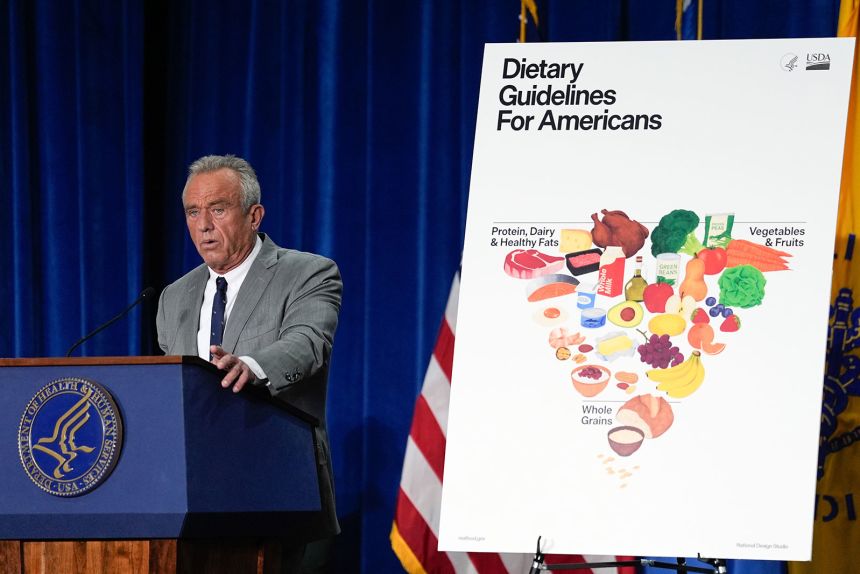Understanding Florida’s Hurricane Risk for Restaurants
Florida’s strategic coastal position between the Atlantic Ocean and the Gulf of Mexico makes it one of the most hurricane-prone regions in the United States. Each year, from June through November, restaurant owners across the state brace for the potential disruptions brought by hurricane season. These storms can produce destructive winds, heavy rainfall, and storm surges capable of causing extensive damage to restaurant properties, from structural harm to dining areas and kitchen equipment destruction, to inventory loss due to flooding or prolonged power outages.
For restaurant operators, the financial and operational impact can be devastating if adequate preparation and coverage are not in place. Beyond physical damage, hurricanes can interrupt supply chains, delay reopening timelines, and lead to significant revenue loss. That’s why understanding the specific hurricane-related risks tied to location, building design, and infrastructure is not just good business sense, it’s a necessity for maintaining business continuity and compliance with insurance requirements.
Comprehensive protection often requires more than a standard policy. Operators benefit from exploring customized restaurant insurance policies Florida, which can be tailored to address their exact exposure — whether that involves flood coverage, windstorm endorsements, or business interruption protection. Such policies ensure that restaurants are not only insured for structural losses, but also for the hidden costs of temporary closures, spoilage, and equipment replacement.
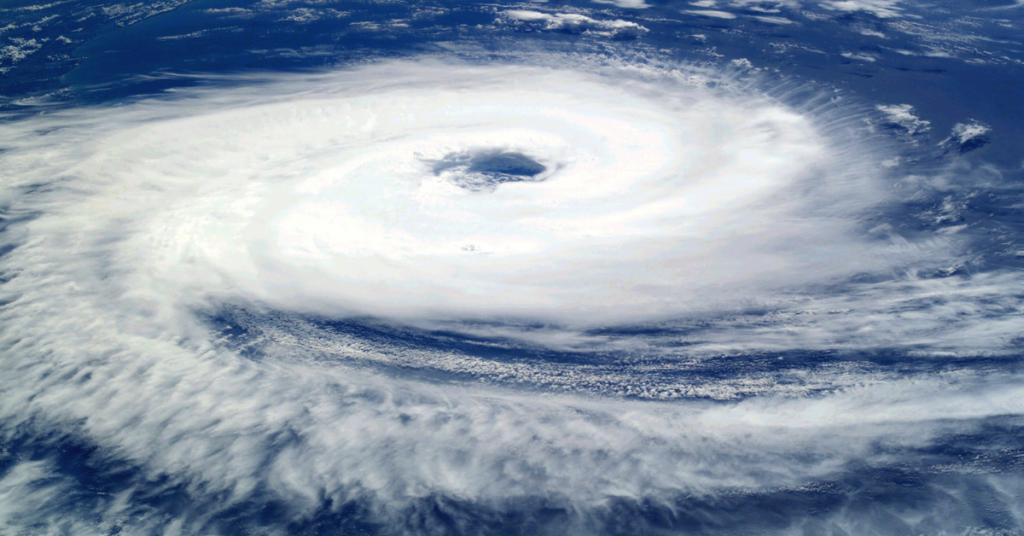
The Unique Vulnerability of Waterfront and Coastal Locations
Restaurants situated near coastlines, marinas, or tidal zones face heightened and often unpredictable risks. A single storm surge can push seawater inland within hours, overwhelming ground-level dining areas, kitchens, and storage rooms. This rapid flooding can destroy flooring, refrigeration units, and electrical systems, making recovery both costly and time-consuming.
However, even inland restaurants are not immune. Heavy rainfall and river overflows, often triggered by hurricanes or tropical storms, can cause flash flooding that leads to property damage and safety hazards. In both cases, the challenge lies in the speed and severity of these natural events, leaving little time for last-minute defenses.
Insurance plays a vital role in these high-risk areas. Standard property insurance may exclude flood damage, which means restaurants must evaluate and customize their insurance portfolios to ensure full protection. Through customized restaurant insurance policies Florida, operators can include add-ons that specifically cover storm surge, water intrusion, and coastal flooding, providing peace of mind during the peak hurricane months.
In addition, proactive risk mitigation can reduce both physical and financial exposure. Coastal restaurants can benefit from installing flood barriers, elevating electrical systems, and using moisture-resistant materials in kitchens and storage areas. When combined with the right insurance coverage, these steps form a comprehensive resilience strategy against Florida’s coastal threats.
Seasonal Patterns and Predictive Planning
Effective hurricane preparedness begins long before a storm makes landfall. Historical data from the National Hurricane Center shows that the most active period of hurricane activity in Florida typically spans from mid-August through late October. This window represents the highest likelihood of tropical storms intensifying into major hurricanes.
For restaurant owners, predictive planning during this time is crucial. By analyzing patterns from previous years, operators can identify recurring vulnerabilities such as power outages, flooding routes, or supplier disruptions. Advanced planning enables them to implement protective measures well ahead of time, safeguarding their property, inventory, and staff.
Practical steps include:
- Securing inventory and kitchen equipment in elevated or sealed areas to prevent water damage.
- Reinforcing doors, windows, and roofing materials to withstand high winds.
- Creating emergency communication protocols to ensure staff safety and operational coordination.
- Developing backup supplier networks for essential food and beverage products.
Insurance planning should also follow this seasonal rhythm. As storms become more frequent and severe, restaurant owners are advised to review their customized restaurant insurance policies Florida annually — ideally before hurricane season begins. This ensures that all coverages remain up to date with changing risk levels and property values.
By combining data-driven preparation, structural resilience, and customized insurance protection, Florida restaurants can better withstand the inevitable challenges of hurricane season and resume operations faster when the skies clear.
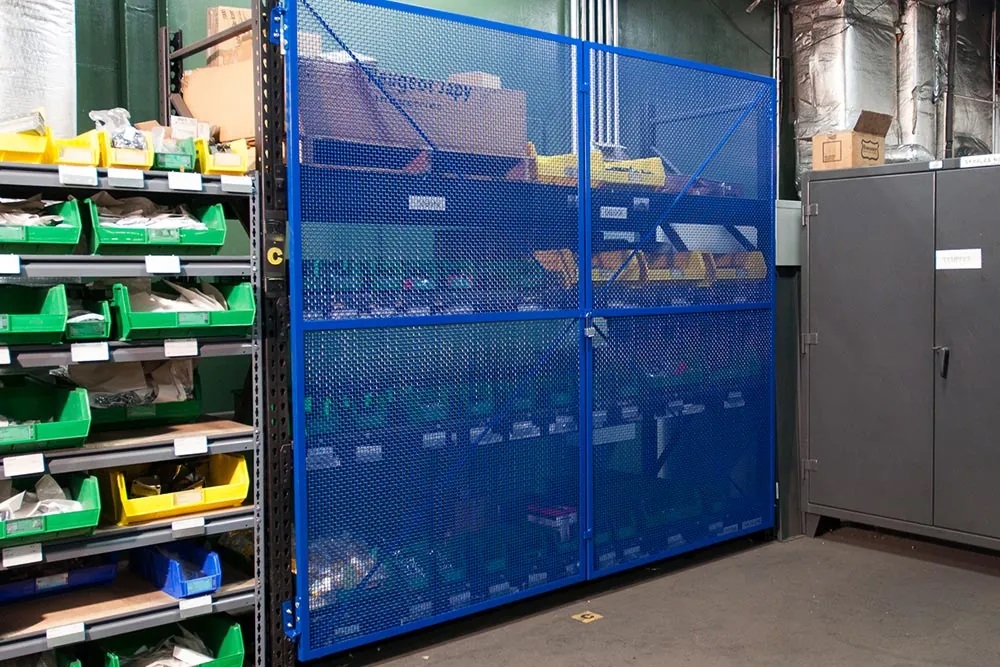
Business Interruption Risks and Financial Exposure
The Hidden Financial Toll of Hurricanes on Restaurant Operations
While hurricanes and storm surges inflict visible physical damage to restaurant properties, the financial impact extends far beyond the immediate aftermath. For many Florida restaurants, the most challenging part of a natural disaster is not rebuilding walls or replacing equipment, it’s surviving the prolonged loss of revenue during operational downtime. Extended closures for repairs, supply shortages, or infrastructure issues can severely affect cash flow and threaten long-term customer retention.
In Florida’s competitive hospitality industry, where consistent service and reputation are essential, even a few weeks of closure can lead to permanent customer attrition and disrupted vendor relationships. Without adequate insurance protection, these financial strains can become insurmountable, putting small and mid-sized restaurants at risk of never reopening.
That’s why proactive financial planning, anchored in customized restaurant insurance policies Florida, is essential for ensuring resilience. These tailored policies combine property protection, business interruption coverage, and loss mitigation measures designed specifically for Florida’s hurricane-prone environment.
Direct Costs vs. Indirect Costs
When hurricanes strike, restaurants face two primary categories of losses: direct costs and indirect costs. Understanding this distinction is key to effective risk management and insurance planning.
Direct Costs refer to tangible, immediate expenses incurred from physical damage. These typically include:
- Structural repairs to dining rooms, kitchens, or storage facilities.
- Replacement of damaged kitchen equipment, electronics, or furniture.
- Loss of perishable inventory due to flooding or power outages.
- Cleanup and debris removal following the storm.
However, Indirect Costs often exceed the visible damage. These are the hidden financial burdens that continue to accumulate long after the storm has passed, including:
- Lost sales and revenue during temporary closures or limited operations.
- Employee wages that must be paid even when the restaurant is not generating income.
- Costs of temporary relocation or renting alternate spaces to continue serving customers.
- Marketing and reopening expenses to regain customer trust and restore brand reputation.
These indirect costs can erode profit margins quickly, even for established restaurants with strong customer bases. The most effective safeguard against such losses is Business Interruption Insurance, which compensates restaurant owners for income lost during closures caused by covered disasters. When integrated into customized restaurant insurance policies Florida, this coverage ensures that both the immediate and lingering financial effects of hurricanes are addressed comprehensively.
Case Studies of Hurricane Damage Impacting Restaurants
Real-world examples across Florida illustrate how unpreparedness—or inadequate insurance—can devastate restaurant operations.
In 2022, a well-known coastal seafood restaurant in Naples suffered extensive flooding from Hurricane Ian. While their property insurance covered structural repairs, the lack of business interruption coverage left them without compensation for lost revenue during the four months it took to reopen. The result was a severe financial shortfall that forced layoffs and ultimately delayed the restaurant’s full recovery.
Conversely, a family-owned bistro in Fort Lauderdale experienced a similar situation but had invested in customized restaurant insurance policies Florida, which included a robust business interruption clause. This policy covered not only lost income but also staff wages and temporary rental costs while the restaurant relocated its operations. As a result, the business resumed partial service within weeks and retained most of its employees and loyal clientele.
These contrasting outcomes highlight an essential truth: insurance coverage determines recovery speed and financial survival. Restaurants that incorporate business interruption protection into their customized insurance strategy are far more likely to reopen quickly, retain their workforce, and sustain customer loyalty after major storms.
Building Financial Resilience Through Customized Coverage
In an unpredictable climate like Florida’s, where hurricanes and tropical storms are annual realities, relying on standard insurance policies can leave dangerous gaps in coverage. Restaurant operators should work with experienced insurance advisors to design customized restaurant insurance policies Florida that align with their unique operational risks, location, and financial structure.
A well-structured policy may include:
- Property and contents coverage to address physical damages.
- Business interruption insurance to replace lost income during closures.
- Extra expense coverage for relocation or emergency operations.
- Utility interruption endorsements for power or water disruptions.
- Employee coverage to support staff retention during downtime.
Ultimately, business interruption insurance is not just a financial tool—it’s a lifeline that allows restaurants to sustain their operations, protect their workforce, and maintain customer trust when disaster strikes. By pairing proactive disaster planning with customized insurance coverage, Florida restaurant owners can navigate hurricane season with greater confidence and stability.
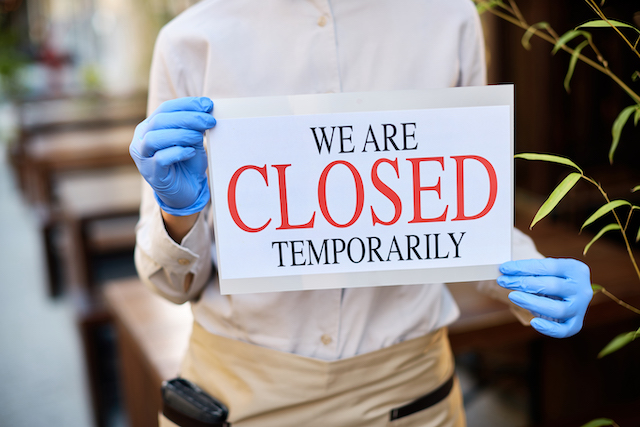
Property Protection Strategies for Restaurants
Securing Commercial Property Against Hurricane and Storm Surge Damage
For restaurant owners in Florida, protecting commercial property from hurricane and storm surge damage is not only about meeting insurance requirements—it’s about ensuring business survival. Each year, restaurants across the state experience millions of dollars in property-related losses due to wind, flooding, and power outages. The combination of adequate insurance coverage and proactive mitigation strategies creates the strongest defense against these natural disasters.
Effective property protection requires a dual approach: physical preparedness and financial coverage. Physical measures strengthen the restaurant’s ability to withstand the storm, while insurance ensures recovery if damage occurs. This proactive balance helps operators safeguard both tangible assets and long-term profitability.
Building Reinforcements and Storm-Proofing
The first line of defense against hurricane damage begins with the building itself. Restaurants that invest in structural reinforcements can dramatically reduce both property loss and operational downtime. Common storm-proofing upgrades include:
- Hurricane-rated shutters or impact-resistant windows to protect against flying debris.
- Reinforced roofing systems designed to withstand high wind pressures.
- Elevated platforms or raised foundations for kitchens, cold storage, and electrical panels in flood-prone areas.
- Wind-resistant doors and waterproof seals for entrances and service areas.
These improvements not only enhance safety but can also lower insurance premiums, as many insurers reward proactive mitigation efforts with policy discounts. In addition, restaurant owners should schedule regular structural inspections before and after hurricane season to identify vulnerabilities early.
Another vital component is utility protection. Backup generators, surge protectors, and waterproof electrical systems can prevent secondary losses such as food spoilage or equipment failure due to extended power outages. For Florida restaurants operating near the coast, these investments can mean the difference between a temporary closure and a total rebuild.
Inventory Management and Equipment Safeguards
Beyond the building itself, restaurants must take steps to protect inventory, kitchen equipment, and essential documents. Hurricanes can cause sudden flooding and humidity spikes that destroy perishable goods and damage sensitive machinery.
Practical and cost-effective preventive strategies include:
- Elevating inventory storage racks above potential flood levels.
- Waterproofing storage areas with sealed containers and raised shelving.
- Relocating or anchoring expensive equipment, such as ovens, refrigerators, and dishwashers, to prevent shifting or water exposure.
- Maintaining off-site or cloud-based backups for important records like supplier contracts, payroll data, and insurance documents.
- Creating detailed inventory documentation, including photographs and serial numbers, to simplify claims processing in case of loss.
By integrating these safeguards into their disaster preparedness plan, restaurants can significantly reduce downtime, speed up insurance claims, and preserve operational continuity even after a major storm event.
Insurance Considerations: fire insurance for restaurants Florida
A comprehensive property protection policy should address the full spectrum of threats restaurants face—not just hurricanes. While water and wind damage are common in Florida, fire insurance for restaurants Florida remains equally critical. Fires can result from electrical surges during storms, damaged wiring, or post-hurricane power restoration efforts.
Restaurant owners should ensure their fire insurance coverage extends beyond basic structural protection. A well-rounded policy typically includes:
- Building and contents coverage, including kitchen equipment, furniture, and décor.
- Fire suppression system coverage, ensuring replacements or repairs if sprinklers or extinguishers are damaged.
- Business interruption protection, covering lost income due to fire-related closures.
- Debris removal and cleanup expenses, which can be substantial after a fire or storm event.
Regularly reviewing fire insurance for restaurants Florida ensures that coverage limits remain adequate for current property values and replacement costs. It’s also essential to confirm that deductibles and exclusions are reasonable for hurricane-related claims, especially when wind or flood damage indirectly causes a fire.
Finally, integrating fire and storm protection under a single customized restaurant insurance policy offers stronger coordination between coverages. This approach, available through specialized Florida insurers, ensures that every potential risk—whether caused by wind, water, or fire—is properly accounted for, helping restaurant owners rebuild faster and with fewer financial surprises.
By combining proactive property reinforcement, inventory protection, and comprehensive insurance planning, Florida restaurants can establish a resilient foundation that withstands the destructive power of hurricanes, storm surges, and fires alike.
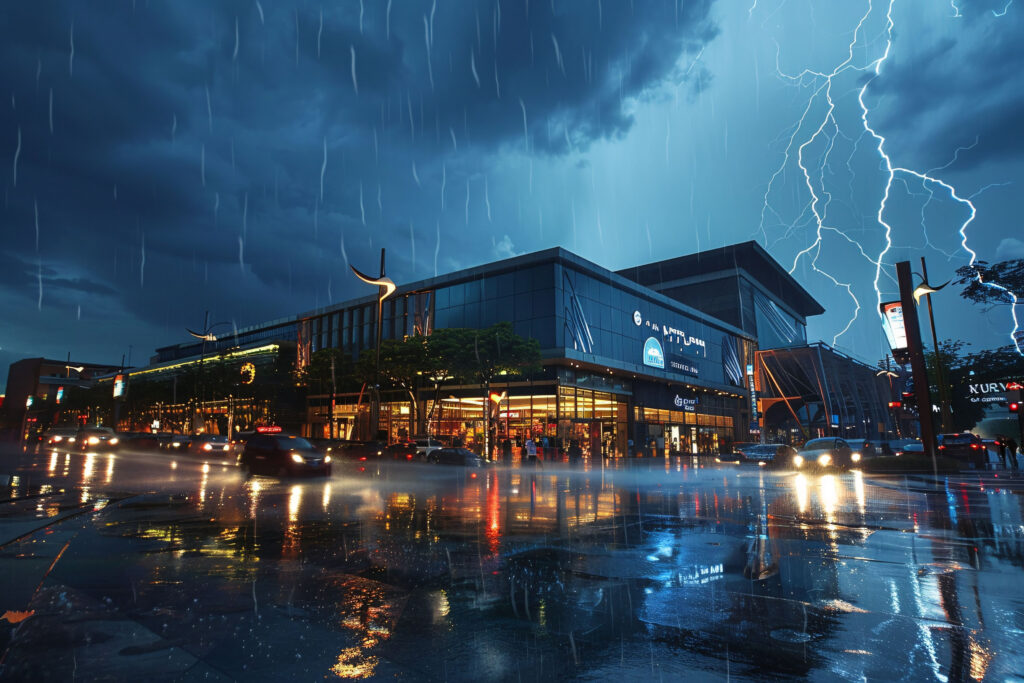
Liability and Staff-Related Risks During Storm Events
Hurricanes can create scenarios that increase liability exposure. Employees may face hazards while performing emergency procedures, and patrons may be at risk if areas are not properly secured.
Workers’ Compensation Considerations
Staff involved in post-storm cleanup, inventory relocation, or emergency response may sustain injuries. Florida law mandates workers’ compensation coverage for eligible employees. Ensuring that workers’ comp policies are up-to-date and adequately cover storm-related incidents is crucial.
Customer Safety and Premises Liability
Restaurants are responsible for maintaining a safe environment. Flooded parking lots, damaged walkways, or unsecured outdoor equipment can lead to claims. Liability insurance protects against lawsuits arising from these incidents, but risk mitigation strategies, like timely hazard removal and proper signage, are equally important.
Navigating Insurance Complexity in Hurricane-Prone Areas
Understanding the Challenges of Insurance Coverage in Florida
For restaurant owners in Florida, navigating the world of insurance coverage can be as challenging as weathering a storm itself. The state’s high hurricane exposure means policies often include intricate terms, exclusions, and layered protections that can be difficult to interpret. Many operators find themselves struggling to understand policy language, coverage limits, and regulatory requirements, all of which have a direct impact on their financial security during disaster recovery.
In hurricane-prone regions, the stakes are particularly high. A single oversight, such as underestimating windstorm deductibles or overlooking flood exclusions, can lead to substantial out-of-pocket expenses when damage occurs. This complexity underscores the importance of working with experienced insurance professionals who understand both the Florida market and the unique operational risks of the restaurant industry.
The most effective strategy involves securing customized restaurant insurance policies Florida, designed to address the layered risks of hurricanes, storm surges, fires, and business interruptions. These tailored plans provide comprehensive protection that standard off-the-shelf policies often fail to deliver, ensuring that every operational aspect—from property assets to staff safety, is adequately covered.
Evaluating Policy Limits and Riders
One of the most common pitfalls in commercial insurance management is assuming that standard coverage limits are sufficient. Restaurant owners should regularly evaluate property, liability, and business interruption limits to confirm that they reflect current asset values and income projections. Inflation, property upgrades, and increased operational costs can quickly render outdated policies inadequate.
Key considerations for effective policy evaluation include:
- Property Coverage: Ensuring that building and equipment replacement costs match current market values, not depreciated amounts.
- Business Interruption Limits: Verifying that loss-of-income coverage accounts for realistic repair timelines and potential supply chain delays.
- General Liability Limits: Protecting against claims from injuries, property damage, or customer incidents during or after storm events.
In addition to these base protections, restaurants should consider adding specialized riders to strengthen their coverage. Common and valuable policy add-ons include:
- Flood Insurance Riders: Essential in coastal or low-lying areas, since most standard property policies exclude flood-related damage.
- Equipment Breakdown Coverage: Protects against losses from mechanical or electrical failures caused by power surges or water exposure.
- Spoilage Coverage: Compensates for inventory losses due to refrigeration or power failures during hurricanes.
- Utility Interruption Endorsements: Covers losses when municipal utilities are disrupted for extended periods after a storm.
These riders, when integrated into customized restaurant insurance policies Florida, ensure restaurants have complete and adaptive protection that aligns with both operational realities and the state’s unique environmental challenges. Regular policy reviews and consultations with a qualified insurance agent, especially before hurricane season, can help identify and close potential gaps before they become costly claims.
Regulatory Compliance and State Requirements
In addition to managing insurance complexity, restaurant operators in Florida must navigate an equally important layer: regulatory compliance. The state enforces specific requirements for commercial insurance, property safety, and employee protection that directly affect coverage eligibility and premium rates.
Key areas of compliance include:
- Workers’ Compensation Insurance: Florida law mandates workers’ compensation for most restaurant employees, providing coverage for workplace injuries and illnesses. Non-compliance can result in fines, penalties, and even business closure.
- Building Codes and Safety Standards: Florida’s building regulations, particularly the Florida Building Code (FBC), outline strict standards for wind resistance, roofing systems, and flood elevation. Meeting these standards not only ensures safety but also helps secure favorable insurance terms.
- Fire Safety and Emergency Preparedness: Restaurants must maintain up-to-date fire suppression systems, emergency exits, and evacuation plans, requirements that can influence fire insurance for restaurants Florida policies and premiums.
- Licensing and Permitting: Maintaining valid business and food service licenses can impact claim eligibility if lapses occur during a covered event.
By ensuring regulatory compliance, restaurants demonstrate a commitment to safety and risk management, factors that can positively influence underwriting decisions and reduce insurance costs over time.
Simplifying Complexity Through Expert Guidance
Ultimately, navigating insurance in hurricane-prone areas like Florida requires both diligence and expertise. Policies can vary widely between carriers, and small wording differences can mean major differences in protection. Restaurant owners are best served by partnering with knowledgeable insurance professionals who specialize in the hospitality industry and understand local weather-related risks.
A trusted advisor can help:
- Conduct comprehensive risk assessments tailored to the restaurant’s location and operations.
- Compare coverage options across multiple carriers to find the best fit.
- Recommend customized restaurant insurance policies Florida that integrate essential protections such as property, flood, liability, workers’ compensation, and business interruption coverage.
- Review policy language annually to align with regulatory updates and evolving business needs.
By taking a proactive, informed approach, restaurant operators can transform a complex insurance landscape into a structured, reliable safety net, one that ensures financial stability and operational continuity even in the face of Florida’s most powerful storms.
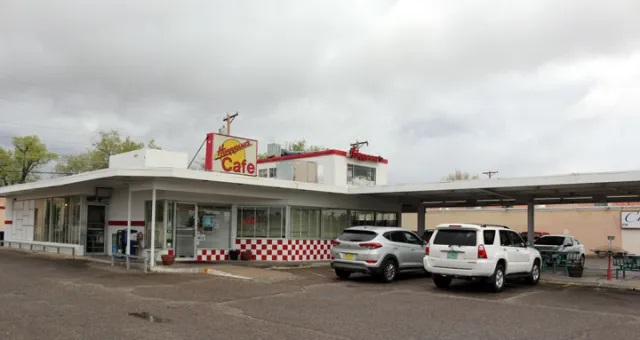
Emergency Preparedness and Continuity Planning
Insurance coverage alone is not sufficient. Comprehensive emergency planning can significantly reduce the operational impact of hurricanes and storm surges.
Developing a Storm Response Plan
A detailed plan should outline employee responsibilities, evacuation protocols, communication strategies, and inventory protection measures. Staff training ensures that all personnel understand their roles during emergencies.
Backup Systems and Off-Site Data Protection
Digital assets, point-of-sale systems, and financial records should be regularly backed up and stored off-site or in the cloud. Cyber liability insurance can also protect against data loss during storm-related power outages.
Leveraging Expert Guidance for Risk Mitigation
Working with experienced insurance professionals ensures that restaurant operators are equipped to handle hurricane risks effectively.
Risk Assessments and Custom Insurance Solutions
A thorough risk assessment identifies potential vulnerabilities and informs tailored insurance solutions. Restaurants can benefit from policies that combine property, liability, workers’ comp, and business interruption coverage in a coordinated strategy.
Industry Resources and Continuing Education
Authoritative sources, such as the U.S. Small Business Administration (SBA), National Restaurant Association (NRA), and Insurance Information Institute (III), provide guidance on disaster preparedness, insurance selection, and compliance best practices.

Taking Action to Safeguard Florida Restaurants
Building Resilience Before the Storm
Proactive preparation is the best defense against hurricane-related losses. Florida restaurant owners can reduce financial and operational risks by:
- Reviewing property and insurance policies regularly to ensure full protection.
- Training staff and creating storm-readiness plans for quick, safe responses.
- Securing comprehensive, customized coverage that includes property, liability, workers’ comp, and business interruption insurance.
Why Choose CIS
When it comes to customized restaurant insurance policies Florida, Commercial Insurance Services (CIS) stands out as a trusted expert. Their team understands the unique challenges restaurants face in hurricane-prone regions and provides tailored solutions to ensure continuity and protection.
Commercialize Insurance Services (CIS) helps operators:
- Identify coverage gaps before hurricane season.
- Bundle policies for stronger, more affordable protection.
- Stay compliant with Florida’s insurance and safety regulations.
By partnering with Commercialize Insurance Services (CIS), restaurant owners gain peace of mind knowing their business, staff, and assets are protected no matter the storm.
To learn more, visit https://usa-cis.com/ or contact one of their knowledgeable agents Today


